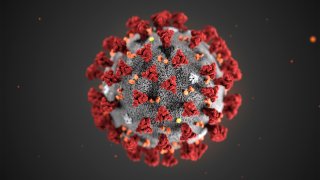
The Connecticut Emergency Management Association is calling on the governor for help to take immediate action to prepare the state, as well as cities and towns, for any impact the Novel Coronavirus will have on Connecticut.
On Wednesday morning, Michael Spera, the president of the Connecticut Emergency Management Association wrote to the governor saying CEMA is concerned with the “extreme shortage of available personal protective equipment” and has called on the governor to take immediate measure to ensure that healthcare and public safety providers have the personal protective equipment needed to respond to a potential outbreak of the virus in Connecticut.
The Connecticut Emergency Management Association serves as the voice of the state’s emergency management directors and the state’s emergency preparedness community.
The organization released the statement the day after officials from the Centers for Disease Control and Prevention warned the American public to prepare for an outbreak of the disease amid more than 80,000 cases around the world. There have been relatively few so far in the U.S.
President Donald Trump will hold a news conference today to discuss the coronavirus threat
CEMA is asking for an allotment of personal protective equipment, including gloves, simple face masks, N95 particulate filtering masks, gowns, Tyvek suits, and Biocell Ambulance Protection Systems for the State of Connecticut from the Federal Government’s Strategic National Stockpile.
They are also asking for the Federal Department of Labor to suspend any requirements for public safety and definitive care healthcare providers to conduct “fit testing” for employees who wear N95 particulate filtering masks.
In addition, they also asking the governor to consider partially activating the State Emergency Operation Center and task State Emergency Management Professionals to conduct an immediate audit of state and municipal resources, such as masks, gowns, Tyvek suits, and Biocell Ambulance Protection Systems on hand; review, revise, and exercise pandemic response plans; ensure previously identified quarantine facilities are still available and operational; review, revise, and exercise mass vaccination plans should a vaccine become readily available; and conduct a briefing for elected and public safety officials on the State’s preparedness activities.
Following is the letter that was sent to the governor.
The following information is from the Centers for Disease Control and Prevention:
Local
Frequently Asked Questions About Coronavirus
A novel coronavirus is a new coronavirus that has not been previously identified. The virus causing coronavirus disease 2019 (COVID-19), is not the same as the coronaviruses that commonly circulate among humans and cause mild illness, like the common cold.
Cases of Coronavirus in the United States
There have been 14 cases of this coronavirus -- COVID-19 -- in the United States. Twelve of them were travel-related and two were spread from person to person.
How Coronavirus Spreads
This virus was first detected in Wuhan City, Hubei Province, China. The first infections were linked to a live animal market, but the virus is now spreading from person-to-person.
The virus is thought to spread mainly from person to person, according to the CDC.
- Between people who are in close contact with one another (within about 6 feet)
- Via respiratory droplets produced when an infected person coughs or sneezes.
- These droplets can land in the mouths or noses of people who are nearby or possibly be inhaled into the lungs.
Spread from contact with infected surfaces or objects.
Symptoms of Coronavirus
- Fever
- Cough
- Shortness of breath
Note: The CDC believes that symptoms of COVID-19 might appear in as few as two days or as long as 14 days after exposure -- based on what has been seen previously as the incubation period of MERS-CoV viruses.
Prevention of Coronavirus
- Avoid close contact with people who are sick.
- Avoid touching your eyes, nose, and mouth.
- Stay home when you are sick.
- Cover your cough or sneeze with a tissue, then throw the tissue in the trash.
- Clean and disinfect frequently touched objects and surfaces using a regular household cleaning spray or wipe.
- Follow CDC’s recommendations for using a facemask. CDC does not recommend that people who are well wear a facemask to protect themselves from respiratory diseases, including COVID-19.
- Facemasks should be used by people who show symptoms of COVID-19 to help prevent the spread of the disease to others. The use of facemasks is also crucial for health workers and people who are taking care of someone in close settings (at home or in a health care facility).
- Wash your hands often with soap and water for at least 20 seconds, especially after going to the bathroom; before eating; and after blowing your nose, coughing, or sneezing. If soap and water are not readily available, use an alcohol-based hand sanitizer with at least 60% alcohol. Always wash hands with soap and water if hands are visibly dirty.
Information from the State on Coronavirus
The state has posted information online about Coronavirus Disease 2012 - COVID-19



